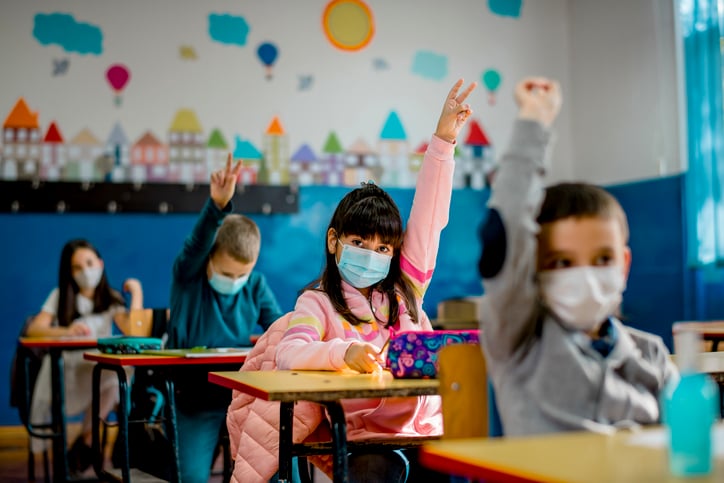
As we celebrate this month’s confirmation of the first U.S. education secretary, Miguel Cardona, to have learned English as a second language, maybe we can afford ourselves some optimism about the future of public education in the nation and how recent experiences may show us that the only way forward is to redouble our commitment to and investment in schools and teachers.
The global pandemic, economic policies in reaction to it, and associated school closures have redrawn the boundaries for education. We’ve been thrown in at the deep end of educational technology and discovered very quickly that sometimes it works very well and sometimes it doesn’t, but what we do know is that technology does not replace teachers, and it works best when teachers can use it in smaller groups to intensify personalized instruction. We need more well-trained teachers now to help students overcome the fallout of school closures, and we will need to recruit and train a lot more teachers to cope with the impending shortage.
Now is the time to capitalize on the recognition of the amazing work that educators do. Parents and others have experienced firsthand some of what is expected of today’s teachers, and there is a groundswell of appreciation for and admiration of their work that needs to be translated into higher salaries, more professional development, and improved working conditions.
However, the urban school districts that most need additional funding to recruit and train teachers are the most likely to have their budgets slashed as a result of the sharp decline in commercial property values caused by the retail and office closures during pandemic shutdowns. Property taxes account for up to 30% of the tax revenue that cities and towns use to fund schools and other local services, but it is predicted that such revenue could drop by up to 10% in some municipalities.
Lawmakers in Washington have been negotiating a possible stimulus package providing up to $350 billion for states and cities, but there are still plenty of objectors to such a plan who see the funds as a bailout for poorly managed local governments. The federal government has shown that it has deep pockets when it comes to subsidizing businesses and there is a general acceptance of the idea that we need a grand plan of investment in infrastructure to build our way out of the economic downturn caused by the pandemic, so why not allocate spending specifically for the modernization of schools, the implementation of new technologies in them, and the recruitment and retention of well-paid educators to train the next generation of Americans to cope better with our rapidly changing world?
A New Deal for education would be one of the best investments the country could make in its future. President Obama famously claimed that every dollar spent on early childhood education resulted in a return to society of over seven dollars. President Biden and his new education secretary should push forward the case for massive investment in all levels of public education and make sure that our teachers are rewarded as the most valued essential workers.





